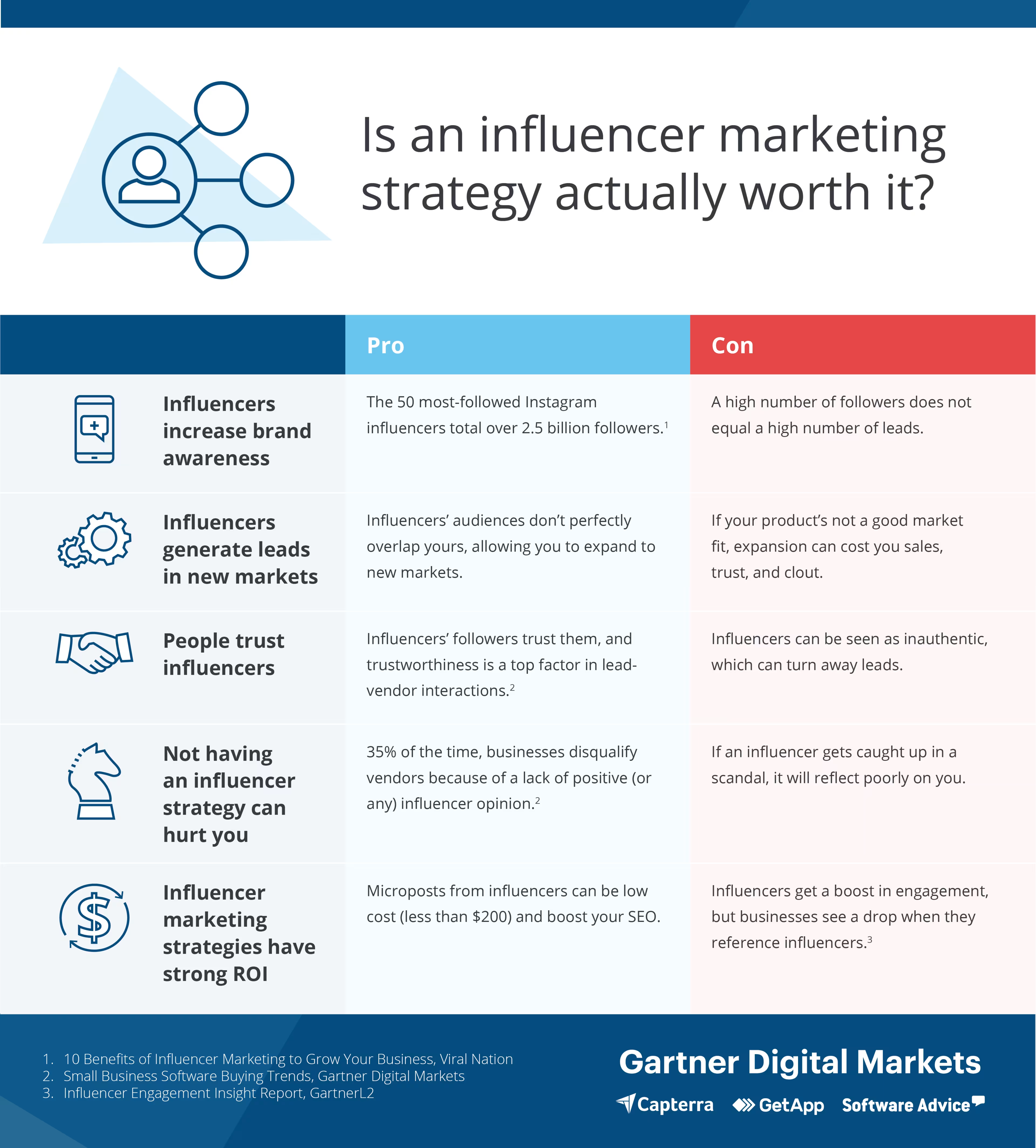Influencer marketing strategies are meant to get new leads and convert old ones, all for a low cost. But can they actually deliver the goods?

You're on the train, waiting for your stop. You scroll through Instagram. Selfie on a mountain. Food. Selfie on the beach. Food. Your cousin and his boyfriend. Same old, same old.
And then, a post. A beautiful person, telling you how much their life has changed since they started using Product X. You've just been hit with a dose of influencer marketing. So are you more likely to buy Product X?
The answer might shock you: maybe.
That's right, there's no definitive answer here. There's a chance you'll be influenced by that influencer. There's a chance you won't be.
I know, I know. This goes against the litany of articles about how valuable influencer marketing can be.
Bear with me, though. We'll take a look at the typical goals of an influencer marketing strategy and then weigh whether or not influencers are actually effective at helping you achieve those goals.
Why businesses seek out influencers in the first place
Influencers have what you want: clout.
They have a wide audience, which is essentially the main appeal behind an influencer. The number one reason companies partner with influencers? To increase brand awareness.
If you partner with an influencer, you'll have at your beck and call a voice of authority with a wide audience. More people will hear about your product, and from someone they trust.
Which, frankly, sounds pretty appealing. But that's only if it works.
If it doesn't, you can wind up with disasters like this, when an influencer with well over 2 million followers developed a clothing line with a company and then failed to sell even 36 of her shirts. Something like that can cost your company time, money, and a lot of that trustworthiness you're trying to garner.
So let's do a deeper dive here to see how effective an influencer marketing strategy is.

What to do if you choose to implement an influencer marketing strategy
If you've weighed your options and decided an influencer marketing strategy is right for you, you're still going to need to address each of those negative components to increase your chances of succeeding.
This means taking the following precautions:
Make sure that your product fits a particular influencer's original messaging. For example, a person who touts a shareholder first mentality wouldn't be a good fit for CRM software.
Make sure that your partnership is a relationship, not a business transaction, to combat that feeling of a lack of authenticity. You should be constantly available to address their concerns and bring them into the fold on any changes you plan on implementing.
Continually track your social engagement to make sure the relationship is mutually beneficial. If your influencer gets a bump in followers every time they post about your product, but you don't, that's not a good relationship.
Once you've addressed these issues, you will have laid a strong foundation for making sure your influencer marketing strategy pays off.